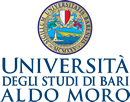Changing the Mask: Formative Teaching of Ancient Greek Theatre in the Digital Age
DOI:
https://doi.org/10.15162/2465-0951/1380Parole chiave:
Formative assessment, teaching ancient drama, covid-19, digital humanities, feedback literacy.Abstract
Given the special circumstances during a pandemic, and the continuing need to keep improving the quality of teaching through suitable didactic strategies, this paper argues for a further development of the formative approach of teaching in order to make accessible the full repertory of online available resources. For the study of ancient Greek theatre, due to its strong ties with the ‘visual-based’ Reception, Cultural and Performance Studies, the formative approach is especially well suited. Formative assessment’s main objective is to contribute to the learning process through feedback and criticism.
The unlimited availability of study material, and the possibility (and challenge) of contributing to this material through peer-to-peer feedback and participation in work-in-progress, are opportunities that the digital age offers, and have not been on offer on such scale before. The study of classics rapidly develops into students’ participation, criticism, and contribution through the wealth of online initiatives and projects concerning lexica, editions of texts, fragments, and commentaries, and the archiving and reworking of reception pieces. In online teaching, digital philology has become a students’ assignment too. Formative assessment encourages students to ‘learn-through-participation’ and immersion.





